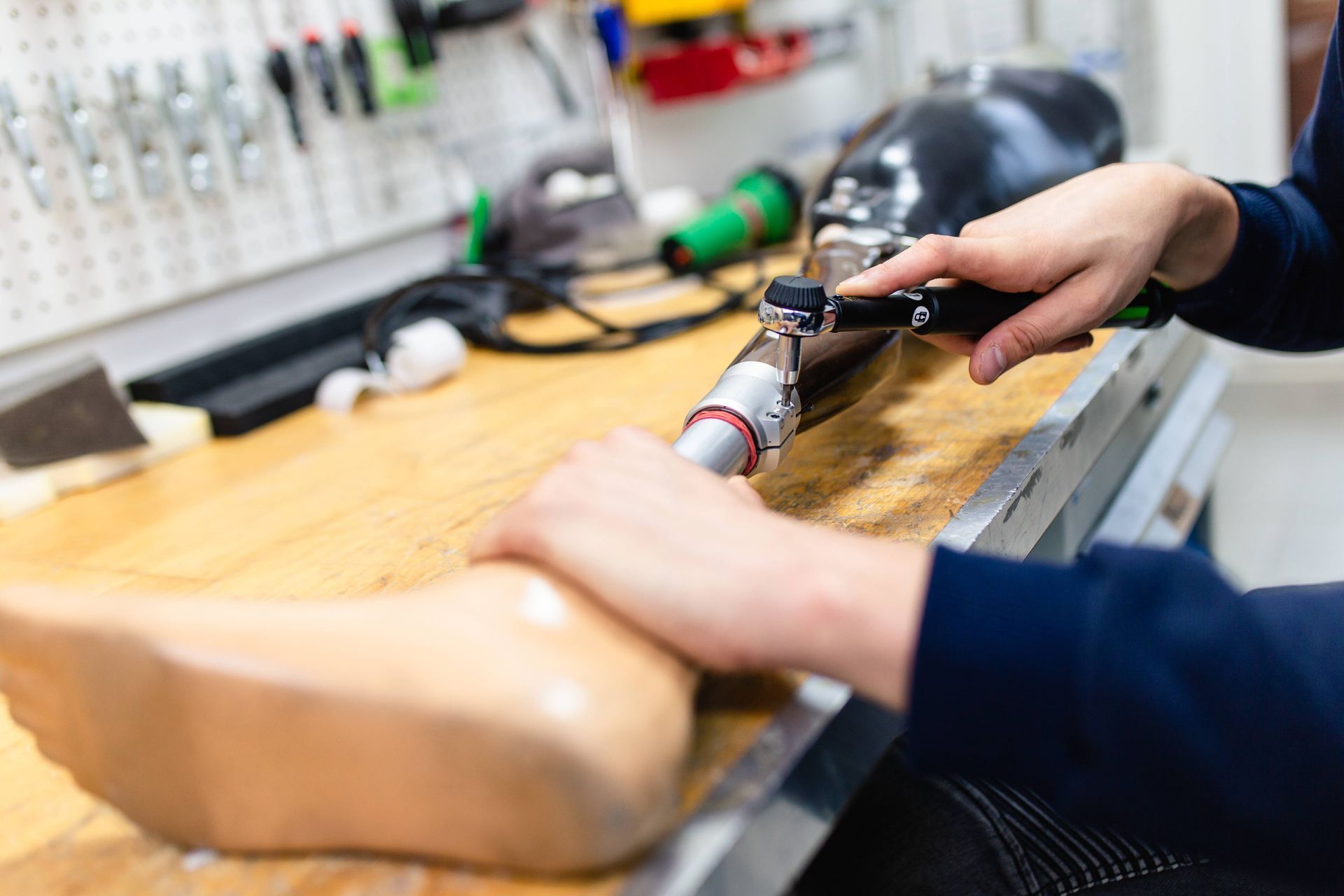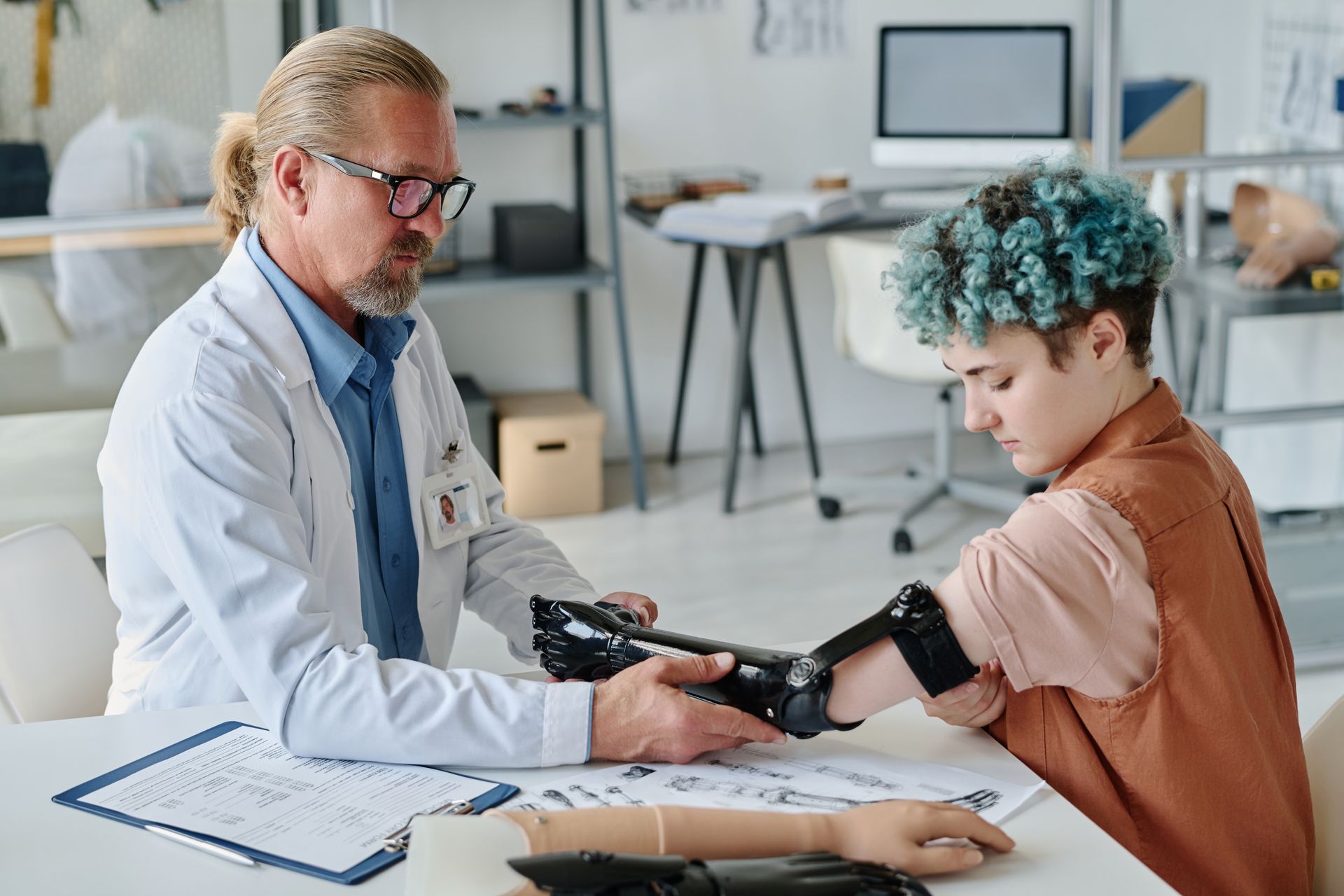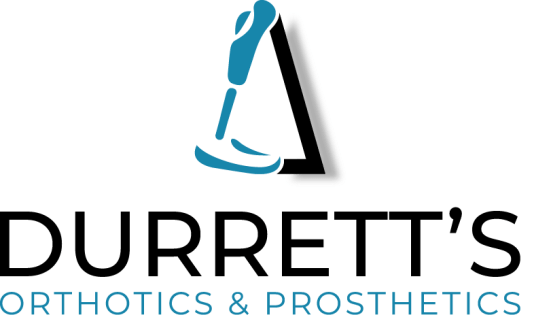The right prosthetics can play an important part in improving a person’s life, and just as important are the prosthetic accessories that go along with them. They serve essential functions, enhancing user mobility, comfort, and daily performance. Our experts at Durrett's Orthotics & Prosthetics can explain the different kinds of prosthetics and how people use them — we can also determine if prosthetic accessories will benefit you.

Prosthetic Leg Accessories
The right prosthetic accessories can make all the difference in daily comfort and confidence for people using prosthetic legs. For instance, cushioning socks, protective liners, and realistic-looking covers create better connections between prosthetics and residual limbs, making walking and movement more comfortable.
Beyond those basics, other helpful products support the overall prosthetic experience. We frequently recommend creams and lubricants to keep skin healthy, compression sleeves to manage swelling, and specially designed clothing. The latter helps amputees dress with ease and style while accommodating their prosthetics.
Prosthetic Arm Accessories
Prosthetic arm accessories also expand functional capabilities and improve daily task performance. Terminal devices, like hooks and hands, offer different gripping mechanisms suited to various activities: Some users prefer hooks for durability and precision, while others like using their cosmetic hands for social situations.
We can also suggest other prosthetic arm accessories for improved function and comfort. Specialized gloves protect prosthetic hands from wear while providing better grip, and suspension systems secure prosthetic arms more reliably to the residual limb. Control cables and harnesses allow users to operate their prosthetics more effectively; many users also benefit from liner systems that reduce friction and improve the fit.
Other Types of Prosthetic Accessories
This category of prosthetic accessories focuses on maintenance and upkeep. First, cleaning supplies designed for prosthetic materials promote hygiene and longevity. Used regularly, specialized soaps and disinfectants also prevent damage by removing bacteria, salt deposits from sweat, and residue buildup that can degrade prosthetic components over time.
Repair kits containing common replacement parts and tools allow users to complete minor adjustments and emergency fixes. These kits are particularly valuable for active users or those living in remote areas where immediate professional service may not be available.
FAQ About Prosthetic Accessories
Q: What prosthetic accessories are covered by insurance?
A: Insurance coverage varies by provider and policy. Most insurance plans cover medically necessary accessories, but cosmetic or recreational items may require out-of-pocket payment. Check with your insurance provider for details.
Q: How often should prosthetic accessories be replaced?
A: That depends on usage patterns and accessory type. Liner systems typically require replacement every 6-12 months; mechanical components may last several years with proper maintenance.
Q: Can I install prosthetic accessories myself?
A: Yes, but only for some accessories, like protective covers or liner systems. Mechanical components and suspension systems typically require professional fitting and adjustment. If you're unsure if you need prosthetic accessories, visit one of our locations today for a professional opinion.
Visit Durrett’s for Quality Prosthetics Near Edgewood, KY, and Lawrenceburg, IN
Our experienced, certified team members provide personalized consultations and can help you select prosthetics, orthotics, and accessories that enhance comfort, functionality, and confidence. Contact Durrett's Orthotics & Prosthetics for service in Kenton County and Boone County, KY; and Dearborn County, IN.





